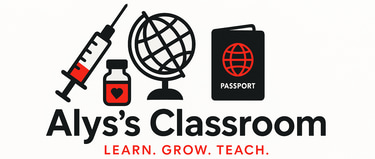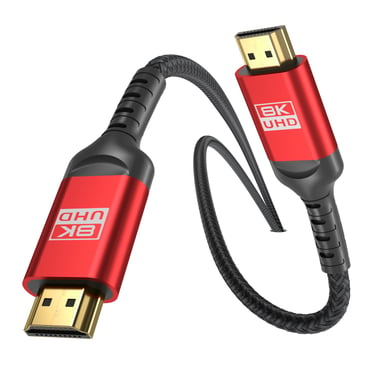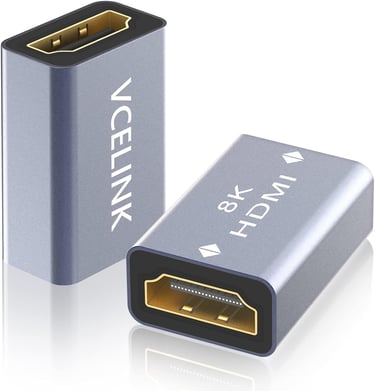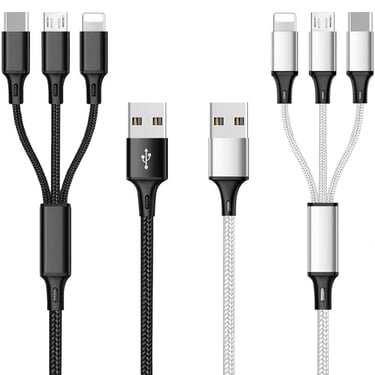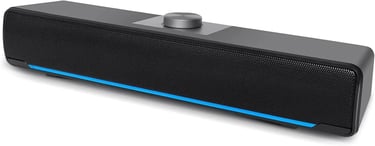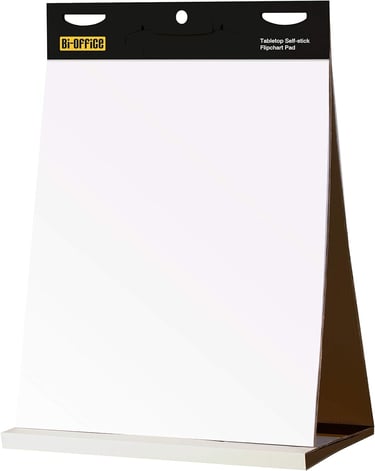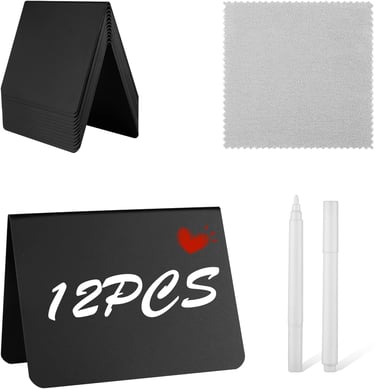Stay Awesome
Face to Face Course Tips!
So you're about to attend or deliver a classroom course huh? Let's make this stress-free for you ...
BEFORE THE COURSE
Print or save any pre-course reading that may have been sent - check you can access any links to study notes.
Are there any instructions or recommended reading in advance of the course? Don't leave it until the last minute!
Know where you are going! Allow time to get there (and find the best parking spot and the best seat in the classroom).
Plan to be on time (or even better, early). The first bit of a course 'sets the scene' and gives an outline of the session. If you join late you miss this important part. Plus you get to have a gossip with the tutor if you're the first one there. 1:1 time is always good!
Don't forget to pack a pen and paper. Not all courses provide stuff like this (although I always bring a spare pen at least for my courses).
Find out if lunch is provided and if not, pack a nice lunch. If lunch IS provided let the organisers know if you are GF, vegan, lactose Intolerant and so on...
Ensure you have sorted childcare / clinic appointments / meetings so that you can finish the course and have a bit of reflection time afterwards. Having to leave a course early or in a mad rush means you won't have time to fully digest the session - or you may not receive your certificate of attendance if you haven't attended the full thing. If you know you will have to leave early for another commitment let the organisers know in advance of the course so a contingency can be planned (sch as extra reading for instance). TRAINER TIP: It's REALLY awkward when someone publicly asks during a course if they can finish early. Saying 'yes' publicly means that everyone else thinks the rest of the course isn't important, and then they start leaving too! Saying 'no' is just mean and we always understand if something else comes up. No-one can force you to stay on a course!! But it definitely helps to plan for these things in advance (or privately ask the trainer on the day if it's unanticipated).
Have a look at the 'after the course' section below and see if you can start preparing for making study files so you know what the plan is after the course.


DURING THE COURSE
Being in a room with what is often going to be 'a load of strangers' can be daunting. Find an ally early on!
Most of the time you will have a choice of where to sit - if you're early, even more so. In my experience the back rows tend to fill up the fastest! Consider things like your vision. Can you see the slides ok? And your hearing too. Will you be able to hear OK at the back or would you benefit from being closer or able to see the tutor talking a bit better? Where is the Aircon? Are you a person who runs hot or cold? Chose wisely according to your temperature needs. By doors and windows are usually the colder spots.
Sounds patronising (sorry) but be sure to visit the loo before the course starts (I often forget and then regret it) and ensure you know where the coffee machine is so you can be first there on the break.
Are you a bit nervous in large groups or new situations? Me too! I used to get panic attacks and there is no way I would have ever envisioned doing the job I do now back then. But I forced myself out of my comfort zone and after years of practice, I know comfortably (ish) deliver talks to over a hundred people if I am invited to. YOU CAN DO THIS! If you are coming on a course run by myself you can be sure to know that I totally understand nerves, and I never mind if someone wants to leave the room for a minute, sit by the door, stay quiet, or just come and have a hug. I want you to be comfortable on my course so do what you need to do to be happy and relaxed. Learning is very difficult if you're not able to concentrate. YOU GOT THIS!
Don't hesitate to come and say at the start of a course if there is anything your tutor can do to make your experience better or easier.
(Bonus tutor insight: if it makes you feel any better, no matter how confident a tutor looks, we all get the pre-course nerves too!!)
NOTE-TAKING TIPS: Some people like to take notes and others do not. Some benefit from writing furiously throughout and others just find it confusing and just want to listen. That's OK. Do what helps you the most. My personal tip when taking notes is to have four lists on the go so your notes are organised. Add to them accordingly as you go along. Works for me when I'm a delegate on a course.
TO DO LIST
GLOSSARY
TO READ LIST
REFLECTION POINTS (I use this list to inspire me for blog titles)






AFTER THE COURSE
It's not easy being on an intensive course for a large part of the day.
If you're in a similar situation to me then you will probably need to dash off and see to the family or make dinner or walk the dog, but try to take just a few minutes to reflect before you get back to the grind of daily life. You might have some time to think on the journey home. Life can be just relentless sometimes eh? Try to take a moment.
NURSEY TIP: If you are on the NMC register, has anything come up that might be useful for a revalidation reflection?
Most foundation courses involve a large amount of work and supervision afterwards. This is just the start of your journey if you are brand new to a subject.
Phlebotomy involves supervised practice and competency-signing. And maybe buying a few bananas to practice on...
Immunisation and travel health involves lots of further reading around the topics and workbooks, getting to grips with online resources like the Green Book and Travel Health Pro, bookmarking, making study files- and more supervised practice and sign-offs.
Update courses also come with some post-course work to do. Often topics are highlighted that make people reflect and reconsider their practice.
So you are going to have to be very organised.
70% of people are visual learners who really benefit from seeing things in front of them. I suggest a trip to the stationary shop to buy some binders and dividers and make yourself a nice study file full of cheat sheets. Of course, I would always encourage you to use LIVE resources in practice and have a great selection of organised bookmarks, but there is still a role for good old-fashioned paper when you're learning. I've suggested some contents below.
Don't forget to use the website pages here to help you with both bookmarking and creating physical study files in the subject pages.
Suggested Portfolio Content for Immunisers
Vaccine or eligibility summary posters for your specific vaccines (browse the portals for your vaccines)
Guidance documents (e.g. incident management)
Competencies (for all here and for PGD users here as well)
Individual vaccine factsheets (e.g. find some summaries on the fabulous VKP)
Assessments (such as quiz results / completed workbooks). If you don't have any prior evidence of learning you can use my template workbook and complete some of my quizzes to bulk it up a bit.


Suggested Portfolio Content for Travel Healthers
Guidance documents - RCPSG and RCN and Malaria guidelines (see this page for all those)
Template risk assessment and management forms
Summary of travel vaccines / boosters as a quick reference guide (always go by PGD in practice though!). I've made one and so has the fabulous Jane Chiodini. Check out the tools page for some more templates.
Price lists (if applicable)
Ordering information, local referral services
UK schedules and incomplete algorithm posters
Child specific things like malaria dose calculator posters
Disease specific factsheets (e.g. see Travel Health Pro and VKP)
Complex traveller/trip factsheets
Travel health advice - general. Such as altitude, sun safety, food and drink advice, insect bite avoidance
Competencies - signed off and completed (also see portfolio contents for immunisers)


Dyslexia & neurodiversity in the workplace and on training courses
I know that life becomes generally harder to navigate when there's a learning difficulty in tow.
I also know that when I was a lecturer in an FE college, the very FIRST thing we did was assess people's needs and make adjustments all over the place to ensure they had a happy educational experience.
THIS priority often comes to a grinding halt once people enter the workplace. Some adults don't even know they have extra needs in the first place. Late or delayed diagnosis is not uncommon. Some people go through their whole lives only to find out much later on that they have been living with Dyslexia, Dyspraxia, Dyscalculia, or ADHD.
Here are some useful practical links if you or a colleague appears to be struggling:
https://www.bdadyslexia.org.uk/ This is how they describe themselves: "The British Dyslexia Association (BDA) is the voice of dyslexic people. We aim to influence government and other institutions to promote a dyslexia friendly society that enables dyslexic people of all ages to reach their full potential.". Nice aims!! And some useful info on the website too around learning and workplace adjustments. See https://www.bdadyslexia.org.uk/advice/employers/how-can-i-support-my-dyslexic-employees/reasonable-adjustments-in-the-workplace
https://www.inclusiveemployers.co.uk/blog/understanding-dyslexia-in-the-workplace/ A very useful bit of information defining 'learning difficulties' and tips for inclusivity in the workplace.
How neurodiversity-friendly is your clinic? Is it time you considered some workplace training for you and your team?
Dyslexia and me: ‘Don’t let your differences stop you’. District nurse Teresa was diagnosed with dyslexia as an adult. She shares her strategies for success in work.


Neurodiversity in medical education. Suggested reading:
Hedlund A. (2023) Autistic Nurse: Do they exist? British Journal of Nursing 32 (4) 210-214
Major R. & Tetley J. (2010) Effects of Dyslexia on Registered Nurses in Practice Nurse Education in Practice 35, 7-13
Neurodiversity Guidance (RCN) For Neurodivergent healthcare professionals and healthcare students and their managers, mentors, teams and union reps.
Royal College of Midwives (2024) Neurodivergence Acceptance Toolkit. Royal College of Midwives
White J.F. (2024) Neurodiversity & nursing: Reflection of a final year general nursing student. Nurse Education Today



Get in the clinics and observe as soon as you can while it is still fresh. Make sure you have someone to supervise and support you when you feel ready to have a go yourself. Who is your ‘go to’ for advice and support? Who is your immunisation lead? YOU MUST HAVE A PERIOD OF SUPERVISED PRACTICE AND ASSESSMENT AFTER A COURSE!
Enlist some friends, family, and colleagues to help you act out scenarios to check your understanding. There’s nothing like a bit of role play to determine how much you have absorbed! Sometimes we think we know and understand something until we get in practice, meet a challenging situation, and realise we need a bit more education or practice.
The same applies for technique. Take some equipment home and practice with it. Holding syringes, drawing up medication from vials, attaching needles, removing needle sheaths, and so on… (do NOT stab friends and family though!!!) Find out where everything is stored in clinic too! Is it all in date and organised to your liking?
Complete any ELFH modules and competencies relevant to your role (E.G. COVID-19/Influenza for this season). Have you completed other mandatory training such as GDPR, record keeping, consent, safeguarding, chaperoning and infection control?
Do you know where your emergency equipment is? Defib? Adrenaline? How do you alert someone for help in an emergency? Is your clinic safe if someone faints? Do you know your incident / near miss reporting procedures? Do you know what to do in the event of a needle stick injury? Find out your local procedures.
Make a portfolio of evidence and easy-reference material.
Create an organised set of bookmarks on your computer so you have an easy way to refer to the latest information (don’t rely on course slides!). Use the resources on www.alyssclassroom.co.uk to help with this.
Ensure you have completed BLS and anaphylaxis training in the last year
Put a note in your calendar to enrol on an immunisation update course next year. The recommendation is to have ANNUAL updates, however, ensure you have ways to continually stay up to date as things can change fast in vaccine-world!
Subscribe to vaccine update - the monthly publication from the government to keep you up to date. Read through some back issues.
Read the Green Book chapters for the vaccines you will be administering and the earlier chapters around vaccine administration, consent and the national immunisation programme in general. Study the national protocols too.
Check your own vaccination status and ensure you are up to date with ones such as Hepatitis B, Influenza, and MMR.
Try my ‘end of course assessment’ if your workplace doesn’t have a theory assessment for you to complete
Reflect on how your practice could improve uptake. Have those conversations at work with your supervisor and come up with some ways to suggest boosting the uptake in your local area.
Start your competency sign-offs to self-assess and to give to your supervisor for further sign offs. When complete, keep a copy of this document and give a copy to your supervisor for your personnel file.
TO DO LIST FOR AFTER A FOUNDATION IMMUNISATION COURSE
You will no doubt come off a foundation course very overwhelmed with lots of new information. Don’t worry! This is to be expected. Remember this is just the start of your journey. Here is a helpful list of things to do next so you can prepare for your new role:
Are you a trainer delivering a F2F course?
I have some tips for you too!!


My Teacher Toolkit Tips
I use my trusty laptop which is a Lenovo Thinkpad X1 Carbon, and for F2F sessions. I always carry a spare projector and screen, which have saved me a few times. But usually the venue will provide AV equipment (just bring ALL the leads and adapters you can though - more on this below).
The projector I personally use is an Elphas A1. It's okay, but has to be pretty dim lighting to work well. But that's the cost of portability unfortunately. The screen is unbranded, just one off Amazon for around £30. Good in an emergency. I think I've used it twice now. Not that much, but when I needed it I REALLY needed it.
I have a huge collection of leads and adapters and extensions for all types of port (HDMI, VGA, C-type etc - also saved me many times). Here are some examples of the ones that have come up trumps for me the most:
HDMI lead extender
I used to bring a fairly short HDMI cable, but I realised that actually a super-long 5m one is much more useful. I also purchased a much longer 5m lead for my laptop charger. I hardly ever need to use my extension lead these days, and I don't have to angle my laptop all weird just to make the connection reach to the projector (some are ceiling mounted, some plug into a wall a few meters away). Plus, you do not want to be tripping over leads so longer the better to be able to reduce the tension-stretch. No-one wants to do that incident form.
Portable flip chart and markers. I use this one.
USB HD dongle with back ups of the presentation slides on.
HDMI lead for my iphone (to fit to a projector) in case my laptop dies, (plus a spare laptop which is an earlier model of the main laptop). Although to display my slides using my iphone I have to PDF them first as my phone won't host a powerpoint app. Just a tip in case you are using the same sort of things.
I also have a USB speaker as frequently the most common problem at a venue is audio. Wireless portable speakers tend to turn off when idol for a bit so I prefer the USB one to avoid the faff of re-establishing the Bluetooth connection each time I want to play a video. Wireless ones also have a habit of the battery dying by the end of the day or just as I'm showing the final clip.
Other gadgets that join me on F2F courses are my wireless mouse and wireless laser pointer and clicker to move slides on and to point at pertinent stuff on the screen. When I'm at home this doubles up as a laserbeam for the cat to have hours of fun with (distracts her from eating the hamster).
I always take overlays for people with dyslexia to use to aid with reading. These are always gratefully received. If I use handouts, I often print on yellow paper as this is better for visual impairments. We should always make an effort to cater for different learning needs.
And lots of spare pens and note paper for delegates to use because it's guaranteed at least one (usually way more than one) will not bring any note-taking equipment.
I also bring a few portable charging banks and a selection of phone charger leads as some courses depend on people looking things up on their phones, and I don't want to drain their batteries and then leave them not being able to access train tickets etc by the end of the day. I have a few different makes of those and multi leads to go with them. Plenty of people have borrowed these and been grateful for them many times on courses.
I also have some little chalk board place holders for people to write their name on so I can learn their names better. They are just like the ones you see in bakeries that people use to write cake names and prices on. They wipe clean ready to use again next time.
I also wear a name badge on a lanyard with BIG print so people don't have to look for long at my midriff areas -so they don't forget who I am either.
If you really want to go the extra mile, take a full on medical kit. There's always someone who needs a Strepsil (persistent coughers) or a NSAID or a tissue or a tampon. In the peak of summer (that one day we usually get) I bring a standing rotating fan. HOT AND SWEATY delegates are not a happy bunch to teach. BUT there's always a mixture of people in the group - some who are TOO HOT and some who are TOO COLD. Sometimes you just have to have a shuffle so the hot people sit by the window, and the cold people by the heater. Or lend your cardigan out.
Oh, and I ALWAYS take my own coffee and Coffeemate, especially if in a hotel overnight :-).
PS BONUS TIP: if you ARE in a hotel overnight - bring your laptop and HDMI lead in with you and connect it to the hotel TV (or set up your projector screen if you can be bothered- and treat yourself to what I call the 'Travelodge Cinema Experience'). That way you can watch Netflix to your heart's content. Just DON'T FORGET your leads when you leave!!!
